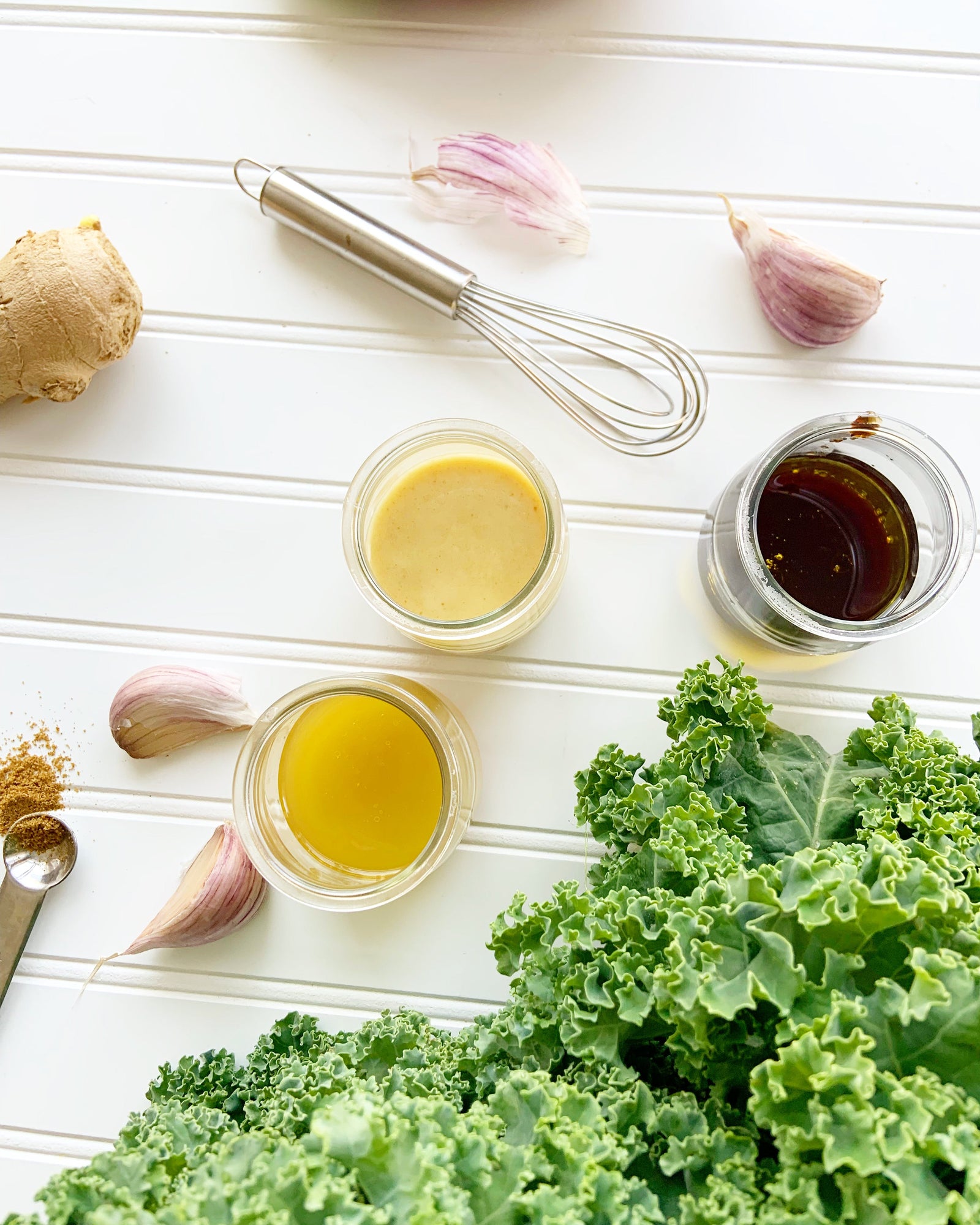8 Things You Need to Know to Find the Best Probiotic for You
Finding the best probiotic for you involves microbes, but luckily doesn’t require a microscope. Here’s answers to your most common questions about probiotics and, the truth behind most common myths about probiotics.
Considering you are host to trillions of probiotics, it’s natural to want to find what’s the best probiotic for your health. Inside your gut there is a microbiome of bacteria that influences everything from your mood to your poop. It’s an exciting, new area of health research, and as such, a few myths and some confusion about probiotics has arisen. Let’s put probiotics under the microscope (not literally), and take a closer look at what you need to know to find the best probiotic for you.
8 Things You Need to Know to Find the Best Probiotic for You
To help you better understand probiotics, let’s use an everyday visual. Imagine a coral reef, full of different coral colonies. You can see a variety of colours, shapes and sizes. Similarly, your gut microbiome is host to a variety of colonies. This healthy coral doesn’t contain sections filled with garbage that inhibit its health. (The probiotic colonies that live in your gut’s microbiome don’t exactly look like coral, but the rest applies.) Probiotics do work together to support a healthy gut, which then influences things from your mood to your poop. When there is garbage in your gut, it is unable to flourish, and its health is inhibited. Your gut is healthiest when it is host to a variety of helpful colonies of probiotics. Do you have enough probiotics? What is the best probiotic for you? Here are 8 things you need to know to find the best probiotic for you:
1. What are the benefits of probiotics?
Day and night trillions of microbes are fighting over who gets to live in your gut. Who’s winning the battle? You can probably tell by how your gut is feeling. If bad microbes are winning, you may struggle with gas, bloating, diarrhea, or constipation. Not only do probiotics support you with visits to the porcelain throne, they are also linked to depression, and immune function.
Benefits of Probiotics
- Aids in digestion
- Helps with nutrient absorption
- Contributes to immune function
- Physically blocks pathogens from disrupting health (diarrhea, vaginal infections, UTIs)
- Supports serotonin (happy chemical) production
2. Do I need to take a probiotic?
We’ve been eating probiotics by the spoonful for centuries: yogurt, kefir, sauerkraut. But, even if you eat these fermented foods daily, it’s likely not enough if you’re trying to consume probiotics to reach a particular health goal. The Gastroenterologists Guide to Probiotics notes that “expected endpoints may not be achieved by generically recommending yogurt…”.
3. How many billions of probiotics should I take?
The adult human gut contains one hundred trillion bacterial cells – that’s a lot of bacteria! As such, probiotic supplements contain billions of CFUs (i.e. how many bacteria it contains that will form a colony). Clinical studies have used as little as one billion to over 300 billion CFUs in studies. The higher dosages are more commonly seen in dysbiosis-related disease conditions (e.g. IBD, bacterial vaginosis), and were combinations of multiple strains of probiotics. If you have one of these health concerns, the best probiotic for you is one similar to that used in the studies. You may need a smaller dosage, or a big one, depending on how old you are and what health ailment you have. Working with a health care professional who is familiar with probiotics can help you determine which strains make up the best probiotics for your health goals.
4. What is the best time to take a probiotic?
The short answer is, whenever you can remember! Probiotic researchers have looked at various scenarios, and reported that taking a probiotic with food, or without food doesn’t make much difference in their effectiveness. In our busy lives, remembering to take your probiotic, no matter what time of day or night that is, is better than forgetting to take it.
5. What is a prebiotic?
Trouble arises in your gut when your probiotic colonies don’t get enough food. Probiotics thrive on a diet rich in plants, including vegetables, fruits, whole grains, nuts, and seeds. Sometimes referred to as prebiotics, these foods contain plant-based fibers that fuel your gut’s probiotics. Eating a diet that is rich in plants is not just a great idea for your gut, it is linked to many healthy benefits, including a lower risk of heart disease, diabetes, and weight gain.
6. What should I look for in a probiotic?
A quality product lets you know how many probiotics will be in the capsule on the date of expiry. It’s a great way to know how much probiotic you’re getting. Refrigerating your probiotic can also help keep delicate bacteria alive.
7. How long do I need to take a probiotic for?
A group of probiotic experts published a paper called, A Gastroenterologist’s Guide to Probiotics. The probiotic experts noted that probiotics have different survival abilities in the gut. Typically, you can find a probiotic in a person’s stool 1 to 4 weeks after they ate it. As such, the Guide states, “…if sustained benefit from a probiotic is desired, continued consumption is likely required.”
8. What is the best probiotic for weight loss?
Sadly, there is no one type of bacteria that will magically cause weight loss. There is however, links in research between some probiotics and potential effects that could promote weight loss. The science is new, and there is no conclusion yet as to whether it is possible to treat obesity with probiotics.
 Plant-based foods are rich in fibres that probiotics use as fuel. Another great reason to add more beans, vegetables, nuts, seeds and fruits into your day.
Plant-based foods are rich in fibres that probiotics use as fuel. Another great reason to add more beans, vegetables, nuts, seeds and fruits into your day.What is the Best Probiotic?
In Canada, you can look for products that contain a Natural Health Product Number (NPN) – it indicates a product has proven to be effective, safe, and of high quality. When looking for the best probiotic for you, consider what your health needs are: children need smaller dosages than adults, and more bothersome gut problems may need higher dosages than minor digestive discomforts. Look for indicators of quality in your probiotic supplement, such as a promise that the number of CFUs will be in the capsule when it expires, not just a high number when it was produced.
Perhaps after scientists have finished the Human Microbiome Project, the 1000+ species of probiotics found in our guts will be fully understood, and then this blog could contain a chart listing health concerns and a known probiotic strains that helps. Until then, look for clinical studies on people with your health concern that has successfully used a probiotic strain. Then, go seek out that strain. For more general health goals, quality supplement companies in Canada have multi-strain products created by probiotic experts that support general health. For more information about specific probiotic strains, visit Health Canada’s list of probiotics with approved health claims.

*Disclosure: I have participated in a paid partnership with New Roots Herbal. Opinions in this post are my own.
WANT MORE? Check out Allison’s book, PROBIOTIC RESCUE
References:
Aust NZ J Psychiatry 2015 Mar;49(3):207-14.
Br J Pharmacol. 2017 Jun; 174(11): 1426–1449.
Inflamm Bowel Dis. 2016 May; 22(5): 1137–1150.
Int J Mol Sci 2015; Apr 2;16(4):7493-519.
J Clin Gastroenterol. 2011 Jul;45(6):518-525.
Microb Ecol Health Dis. 2015; 26: 10.3402/mehd.v26.26191
Nat Rev Neurosci 2012 Oct;13(10):701-12
World J Gastroenterol. 2017 Apr 21;23(15):2696-2704.
Also in Blog

The Microbiome Diet: Gut Health, the Human Microbiome and Your Health
Your guide to the human microbiome, with insights into the Microbiome Diet, and whether it can improve your health, including indigestion.

Why Can't I Sleep: Your Guide to Better Sleep




